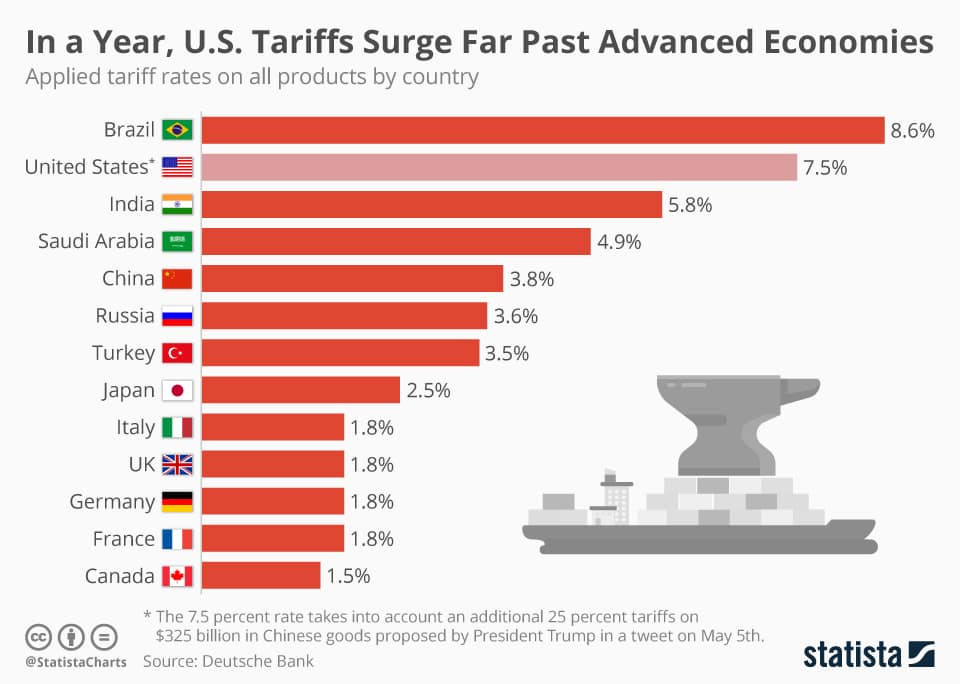Pakistan’s New Tariff Agreement with the US Opens Doors for Exports
Pakistan has recently announced a significant development in its trade relations with the United States, stating that a new tariff agreement has created new opportunities for Pakistani exports. This announcement was made by the Finance Ministry, which highlighted the successful conclusion of tariff-related discussions with the U.S.
According to the statement released by the ministry, a 19% tariff will now be applied to Pakistani goods entering the U.S. market. The ministry described this decision as a balanced and forward-looking approach by the U.S. authorities, ensuring that Pakistan remains competitive against other South and Southeast Asian countries. This tariff level is expected to boost Pakistan’s export potential, particularly in key sectors such as textiles, which form the backbone of the country’s export economy.
The Finance Ministry emphasized that the current tariff arrangement presents a significant opportunity for Pakistan to expand its presence in the U.S. market. However, it also stressed the importance of Pakistani exporters and trade bodies adopting an aggressive and focused marketing strategy to take full advantage of this development.
Beyond textiles, the ministry noted that there is substantial growth potential in other sectors. The government is committed to supporting exporters through policy measures, market intelligence, and trade promotion initiatives. This support aims to help local businesses navigate the new tariff landscape and capitalize on emerging opportunities.
In addition to focusing on traditional sectors, the ministry expressed Pakistan’s interest in deepening cooperation with the U.S. in areas such as investment, artificial intelligence, cryptocurrency, mining, energy, and other emerging industries. The government is keen on maintaining close engagement with the U.S. administration to promote shared goals of economic development and mutual prosperity.
Global Markets React to Trump’s Tariff Policies
While Pakistan celebrates its new trade agreement, global markets are reacting to President Donald Trump’s recent imposition of tariffs on nearly all U.S. trading partners. Governments around the world are facing a seven-day deadline before higher duties take effect. Trump announced that dozens of economies, including the European Union, will face new tariff rates ranging from 10 to 41 percent.
However, the implementation of these tariffs has been delayed until August 7, giving governments time to negotiate bilateral deals with Washington for more favorable conditions. This delay offers a window for countries to seek exemptions or reduced rates before the new tariffs come into effect.
Canada, one of the largest U.S. trade partners, has been hit with a 35% tariff, up from 25%, effective Friday. However, current exemptions remain in place. The tariffs are seen as a demonstration of Trump’s economic power, aimed at strengthening U.S. exports and encouraging domestic manufacturing by limiting foreign imports.
Despite these measures, the muscular approach has raised concerns about inflation and other economic consequences in the world’s largest economy. Stock markets in Hong Kong and London have experienced declines as they adjust to the uncertainty caused by the new policies.
Ongoing Debate Over U.S. Economic Policy
Trump’s actions coincide with ongoing debates about how to steer the U.S. economy. The Federal Reserve recently decided to keep interest rates unchanged despite pressure from the White House to cut them. Two Fed officials who opposed the decision warned that the economy is being put at risk.
Economic data released on Friday showed that U.S. job growth fell short of expectations for July, while unemployment rose slightly to 4.2% from 4.1%. These figures add to the uncertainty surrounding the U.S. economic outlook.
Canada and Mexico Face Increased Tariffs
Trump has raised duties on approximately 70 economies, increasing the rate from 10% to as high as 41%. Goods transshipped through other jurisdictions to avoid U.S. duties will face an additional 40% tariff.
Canada has been singled out for harsher tariffs, with Trump citing Canada’s failure to cooperate in curbing the flow of illicit drugs. Despite this, Canada is not a major source of illegal narcotics. Prime Minister Mark Carney expressed disappointment with the increase.
Mexico, another major U.S. trading partner, has been given a 90-day reprieve from increased tariffs. This delay came after talks between Trump and Mexican President Claudia Sheinbaum. Exemptions remain for a wide range of Canadian and Mexican goods under the existing North American trade pact.

